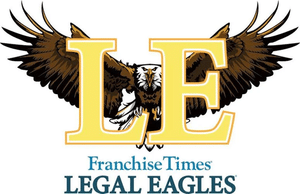Topics in the following two sections may be uncomfortable to discuss. But it is far better to disclose something on your terms, and tell your side of the story, versus not being transparent and having it come back later that you not only had the issue, but you withheld it from prospective franchisees. The coverup is worse than the crime.
In this section of the FDD, for the franchisor, predecessor, parent, any affiliate that either financially backs the franchisor or offers franchises using the franchisor’s trademarks, or anyone disclosed in Item 2, you need to disclose the following litigation:
- Any action pending against the entity or individual that is administrative, criminal, or a material civil action that alleges some kind of violation of franchise law, securities law, fraud, or unfair or deceptive trade practices.
- Any civil actions pending against the entity or individual, other than routine business litigation incidental to business operations, that are material because of the number of franchisees involved and the size, nature and financial condition of the franchise system. Examples of lawsuits incidental to business operations are car accidents, slip and falls, and landlord-tenant disputes, and these need not be disclosed.
- Any civil action during the last fiscal year in which the entity or individual was a party and which involved a franchise relationship. The purpose of this particular disclosure is to show how litigious the franchisor is. If an action is resolved during the last fiscal year, you need to disclose it. If it was resolved the previous fiscal year, you don’t necessarily need to disclose it.
- Any conviction or nolo contendere plea to a felony charge, or any civil action alleging violation of franchise law, securities, antitrust or deceptive trade practices in which the entity or individual was held liable, within the preceding 10 years. Held liable means that the entity or individual either had to pay money, give up rights (such as forego a non-compete) or take an action against his, her or its interest. The exception to the 10-year look back is New York, where a felony has no time limit, so a 20-year-old felony conviction, would need to be disclosed.
- Any action by a public agency relating to franchise, securities, antitrust or unfair or deceptive trade practices that resulted in a currently effective injunctive order or restrictive decree against the entity or individual.
If your eyes glazed over reading the above, you are not alone. That is why you hired us to exercise our judgment into what needs to be disclosed and what doesn’t. If anyone mentioned in Item 2 or any entities associated with the franchisor has been a party to any litigation in the last ten years, just let us know, and we will talk through whether or not it needs to be disclosed.
For the required disclosures of litigation, we need the case number, parties, a brief description of the underlying circumstances, and the current status or how it was resolved. Even if there was a settlement and the settlement says that it’s confidential, it still needs to be disclosed according to the guidelines. That is why you have a franchise law firm helping you prepare your FDD, for us to walk you through this part of the disclosure. And remember, we are your lawyers and bound by confidentiality. So, like the privilege you have with your doctor, you can feel free to tell us anything related to an ugly event in your past that we will work through as your advocate.
Sample Item 3
ITEM 3: LITIGATION
Pending Actions
Blank v. Belmont Mufflers, Inc., No. 06-111 (M.D. Fla. filed August 1, 2007).
Five franchisees filed suit against us for breach of contract, alleging that we failed to furnish equipment in the time period stated in our franchise agreement. These franchisees seek damages of $350,000. A trial is scheduled for later in 2007.
Prior Actions
Doe v. Belmont Mufflers, Inc., No. 05-312 (IRT) (S.D.N.Y. filed March 1, 2005).
Our franchisee, Donald Doe, sought to enjoin us from terminating him for nonpayment of royalty fees. On April 3, 2006, Doe withdrew the case when we repurchased his franchise for $90,000 and agreed not to enforce non-compete clauses against him.
Governmental Actions
Indiana v. Belmont Mufflers, Inc., No. 05-123 (S.D. Ind. filed April 1, 2005).
The Attorney General of Indiana sought to enjoin us, our president Jane Doe, and franchise coordinator Phillip E. Smith, from offering unregistered franchises and using false income representations. The court found that we had offered franchises, that the offers were not registered, and that we had made the alleged false representations. The court enjoined us from repeating those acts.
FTC v. CFT, International Inc., No. 03-222 (D. Minn. filed March 1, 2003).
The Federal Trade Commission filed suit against our parent CFT International, Inc., that guarantees delivery of pipe and equipment to our franchisees. The Commission alleged that CFT violated the Commission’s Mail or Telephone Order Merchandise Rule. The Commission obtained an injunction and a civil penalty of $20,000.
Litigation Against Franchisees in the Last Fiscal Year
During fiscal year 2007, Belmont Mufflers initiated seven lawsuits against franchisees as follows:
Suits to Collect Royalty Payments
Belmont Mufflers vs. Smith, No. 457-123 (E.D. La. 2007) Belmont Mufflers vs. Jones, No. 07-890 (S.D. Fla. 2007) Belmont Mufflers vs. Taylor, No. 07-123 (D. Nev. 2007)
Suits to Enforce System Standards
Belmont Mufflers vs. Stevenson, No. 28-098 (C.D. Cal. 2007)
Belmont Mufflers vs. Rogers, No. 2244 (D. R.I. 2007)
Suits to Enforce Covenant-Not-To-Compete
Belmont Mufflers vs. Baker, No. 07-123 (S.D. Fla. 2007)
Belmont Mufflers vs. Harris, No. 072244 (D. Nev. 2007)
Other than these actions, no litigation is required to be disclosed in this disclosure document.
This is a sample section from a fictional FDD for Belmont Muffler Shops that was prepared by the Federal Trade Commission as a compliance guide for franchisors preparing their FDD. These are used to provide an idea of what these items may look like in an FDD, but keep in mind, your FDD will most likely vary significantly from these examples.







